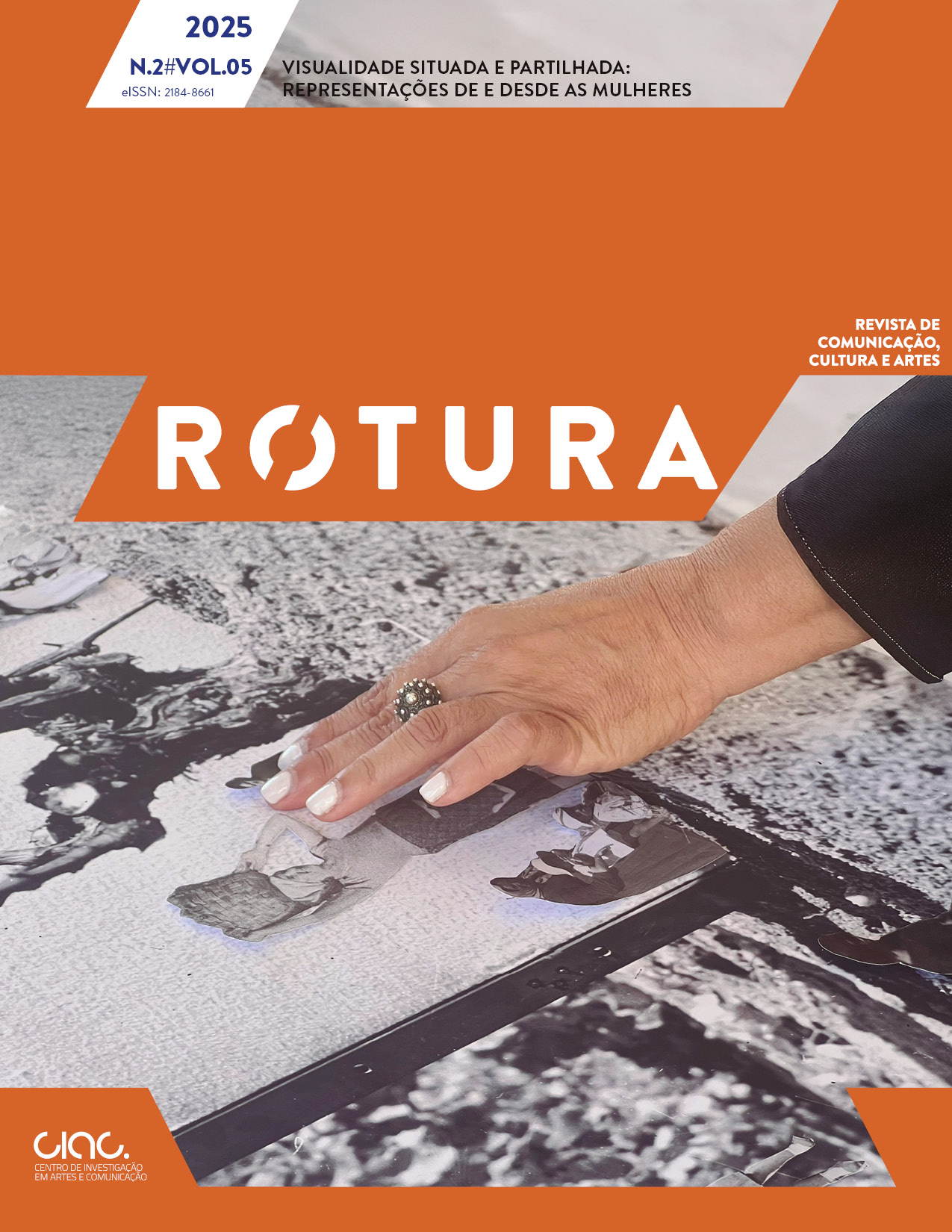Número Atual
Dossier
Relato de Processo
Entrevistas e Recensões
Varia
ROTURA – Revista de Comunicação, Cultura e Artes é uma publicação do Centro de Investigação em Artes e Comunicação, financiada pela Fundação para a Ciência e Tecnologia. Esta revista é publicada semestralmente em acesso aberto.
Âmbito e Política Editorial
A Revista ROTURA publica investigação nas áreas da Comunicação, Cultura e Artes, nomeadamente no campo dos estudos artísticos (artes visuais, média-arte digital, cinema, teatro) e culturais, da comunicação e dos estudos literários (arquivos digitais, edições críticas digitais), mantendo um caráter interdisciplinar. É uma publicação do sistema OJS, com práticas de arbitragem científica rigorosas que integra especialistas de todo o mundo. O objetivo da Revista ROTURA é promover o avanço do conhecimento científico e a divulgação de resultados de investigação nas áreas em que atua, através de uma política de acesso livre ao conhecimento.
Acesso Aberto
Esta é uma publicação de acesso aberto, o que significa que todo o conteúdo é disponibilizado gratuitamente, sem custos para o utilizador ou para a sua instituição. Os utilizadores estão autorizados a ler, copiar, distribuir, imprimir, pesquisar ou criar links para os textos completos dos artigos, ou usá-los para qualquer outra finalidade lícita, sem pedir permissão prévia ao editor ou ao autor.
Publicação
A Revista ROTURA é publicada pelo Centro de Investigação em Artes e Comunicação (CIAC). O CIAC é um centro de investigação multidisciplinar, com sede na Universidade do Algarve, que atua na área dos estudos artísticos, culturais e da comunicação. A Revista ROTURA segue os mais altos padrões de revisão por pares e envolve investigadores nacionais e internacionais.
Os autores mantêm os direitos autorais e concedem à revista o direito de primeira publicação com o trabalho simultaneamente licenciado sob uma licença Creative Commons BY-NC-ND 4.0. Este licenciamento permite que outros partilhem e adaptem o trabalho, para efeitos não comerciais, com o reconhecimento da autoria do trabalho.
A Revista ROTURA é gratuita: sem custo para autores ou leitores, disponível sob a licença Creative Commons Attribution-NonCommercial-NoDerivs 4.0.
Estrutura da Revista
A Revista ROTURA prevê seis secções na sua estrutura:
- Dossiês temáticos;
- Varia;
- Recensões e Entrevistas;
- Crónica de Arte;
- Relato de processo;
- Ensaio Visual.
Política de Revisão por Pares
Tal como apontado anteriormente, a Revista ROTURA segue o processo de revisão por pares duplo-cego (double-blind peer review), estando a decisão de publicar dependente do parecer favorável de dois revisores externos, sendo um deles falante nativo da língua usada no trabalho. Os revisores, peritos académicos ou profissionais, de diferentes proveniências institucionais e geográficas, serão recrutados segundo a temática da revista e o conteúdo dos trabalhos submetidos, das áreas das Ciências da Comunicação e de outras Ciências Sociais e Humanas.
Plágio
Os artigos enviados são verificados, recorrendo a instrumentos eletrónicos (Urkund e Dupli Checker) de verificação de duplicação. Nos casos em que for detetado plágio ou a inclusão indevida ou insuficientemente referida de material de direitos autorais de terceiros, ou em que a autoria do artigo for contestada, a Revista ROTURA reserva-se o direito de tomar medidas, incluindo, mas não limitadas a: publicação de errata ou retificação (correção); recolha do artigo; ação junto do chefe de departamento ou decano da instituição do autor e/ou órgãos ou sociedades académicas relevantes; ou as medidas legais apropriadas.
Preservação Digital
A Revista ROTURA provê serviços de preservação digital que garantem um arquivo permanente e seguro. Os conteúdos publicados são compatíveis com os protocolos LOCKSS (Lots of Copies Keep Stuff Safe) e CLOCKSS (Controlled Lots of Copies Keep Stuff Safe). A Revista ROTURA utiliza o protocolo OAI-PMH como mecanismo de intercâmbio de dados entre sistemas.
A Revista ROTURA é gratuita: não são cobradas taxas de processamento de artigos aos autores e não há qualquer custo de acesso para os leitores. Está disponível sob a licença Creative Commons Attribution-NonCommercial-NoDerivs 4.0.
Esta publicação é financiada por fundos nacionais através do projeto «UID/04019/2025 - CIAC» da Fundação para a Ciência e Tecnologia.


















